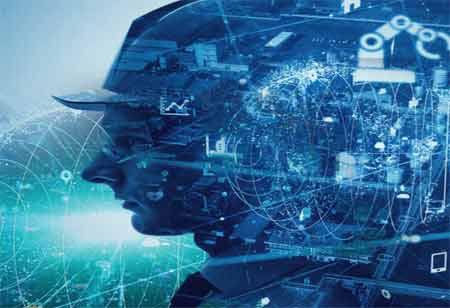Marketing automation powered by artificial intelligence alters the way organizations communicate with customers, enabling marketers to create tailored experiences at scale.
Artificial Intelligence (AI) has true marketing automation potential. To remain competitive, marketing professionals must stay current with the most recent advancements in AI and marketing automation. AI marketing automation is, at its heart, the application of artificial intelligence and machine-learning algorithms to automate and optimize marketing tasks. Technology can change the marketing approach, making it more efficient, individualized, and ultimately effective. Marketing automation means that AI can look at vast amounts of data to find patterns, predict how customers will act, and make decisions in real-time. Marketers can learn more about their audience's habits and preferences by using AI.
Personalization: A firm gives a tailored experience to its clients, as customers are more likely to do business with that company. AI has the potential to assist marketers in achieving this level of personalization at scale by evaluating customer data and providing recommendations that are specific to each individual. For instance, Netflix employs AI algorithms to recommend material to its customers based on their viewing history. This results in improved engagement and retention rates among its users. It lets them make more personalized campaigns that meet the needs of each person.
Cost-effective: Artificial intelligence may help marketers save time and money by automating repetitive operations, reducing the need for manual labor. For instance, AI-powered chatbots can manage consumer questions, and support requests round-the-clock, eliminating the need for humans to work in customer service roles. With time, this may result in significant cost reductions. In addition, AI may assist in advertising spend optimization by determining which channels and campaigns are the most effective, hence lowering the amount of wasted advertising spend.
Optimization of Return on Investment (ROI): Businesses who use AI in marketing see an increase in return on investment (ROI). It is because AI can assist marketers in locating new prospects for growth, improving client engagement, and optimizing advertising expenditures. Applying AI in marketing can result in various positive outcomes, such as higher productivity, decreased expenses, and enhanced customer engagement. It can lead to more people getting involved, happier customers, and better business results overall.
Predictive analytics: AI can deliver predicted insights by studying customer data and behavior, which helps marketers anticipate customer wants and preferences. It accomplishes this through predictive analytics. For instance, Amazon makes product recommendations to its customers using AI, considering the customers' previous purchases and browsing habits. The degree of customization can result in enhanced levels of consumer satisfaction and retail revenue.
Check Out This: Manage Marketing

